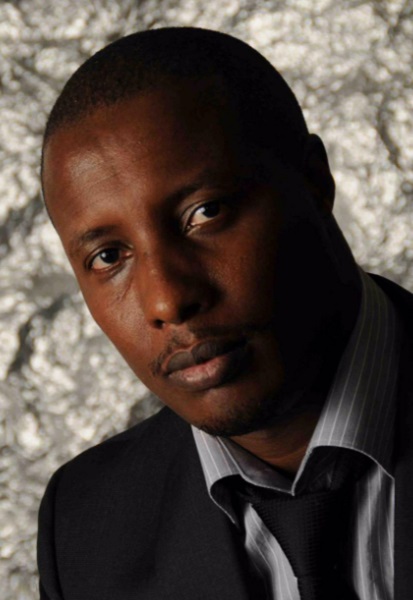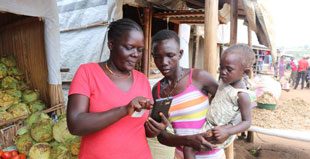
COMMENT | PROF FREDDY R KANIKI | At the end of June in 1945, on a clear and unseasonably cool day in San Francisco, California, fifty nations gathered with shared hope born of a shared trauma. Representatives of these nations gathered at the San Francisco Opera House with a single objective – to establish, define and adopt the United Nations (UN) Charter, an agreement that would ultimately outline the international organization’s goals for the future, and delineate their ongoing responsibilities to the world.
The San Francisco United Nations conference was not only one of the most important gatherings in history but also one of the largest. The first article of that Charter indicated that one of the primary purposes and principles of the United Nations would be to promote and encourage “respect for human rights and for fundamental freedoms for all without distinction as to race, sex, language, or religion.” It was, at the time, a revolutionary, if not slightly naïve concept.
In today’s fast-paced, technologically driven, society influenced by social media, it is easy to feel that the humanity enshrined in that UN Charter almost eighty years ago is slowly fading away. Despite our incredible advancements in communication, medicine, and transportation, there appears to be an underlying sense that we are losing touch with the core values that make us truly human. Core values like compassion, empathy, and community are becoming masked by the levels of divisiveness and animosity we experience in all aspects of our lives, from the way we socially interact with each other, to the way that our larger societal structures are governing us. It is an alarming trend that is tearing apart the very fabric of our humanity that we once so desperately strived for. And it is a situation that I can, most unfortunately, attest to firsthand.
I was raised in the Great Lakes region of Africa in the Democratic Republic of Congo (DRC). It was also an area that, at the time, was characterized by significant political, social, and economic upheaval. Although ethnically diverse, tensions among different groups were often unstable, creating an environment that occasionally led to localized conflicts and uprisings. I grew up nestled in a setting that was both hostile and polarizing.
In 1994, the genocide of the Tutsi in Rwanda had started to spill over into the DRC. In North Kivu Province (Masisi and Rutsuru), 90% of the local Tutsi population were driven out of the country, while their possessions were stolen and their villages destroyed.
It is in this volatile context that the mass killing of Congolese Tutsi was committed and largely ignored by the international community. A mass killing that, in September 1996, included my father and three brothers, brutally slaughtered for the crime of being ethnically different from the murderers who executed them in cold blood.
Today more than 500,000 Congolese Tutsi have escaped DRC to other countries in East Africa. Additionally, since 2017, more than 325 Tutsi Banyamulenge villages in South Kivu province have been burned to the ground, more than 500,000 cattle stolen, and thousands people have violently died, some burned alive and eaten in acts of cannibalism.
The hateful, dehumanizing rhetoric that ignites/encourages killings in the DRC today is remarkably similar to that which predated the genocide almost three decades ago in Rwanda. Most alarming, however, is the lack of help from the international community. An appalling, yet reminiscent, neglect that will surely drive this region into another bloodbath.
My father, a pastor and a man of great faith, bore no ill will towards anyone and never harmed a single soul in his life. My brothers’ young and kind hearts were extinguished by a hatred and cruel division that they were too young and innocent to comprehend. Their senseless deaths left our family shattered forever, and that moment still serves as a permanent and poignant reminder to us of the tragic consequences that always seem to manifest when bigotry is allowed to propagate, and people prioritize prejudice over empathy.
The consequences of prejudice, dehumanization, and polarization have been demonstrated in many historical and present-day examples/cases
Driven by a racist ideology that regarded Jews as less than human, the Nazis implemented genocide on an unprecedented scale, killing six million European Jews during World War II.
Since 2000, over 62,000 Christians in Nigeria have been murdered in a genocide perpetrated by Islamist groups in what the International Committee for Nigeria is referring to as the “Silent Slaughter.”
Since 2017, the Chinese government has imprisoned more than one million Uyghurs, a mostly Muslim, Turkic-speaking ethnic group who live in China’s northwestern region of Xinjiang. Those who have not been detained have been subjected to intense surveillance, religious restrictions, forced labor, and involuntary sterilizations.
In today’s global political landscape, leaders and politicians are often exploiting societal differences to sow division and create enemies out of ordinary citizens. This “divide and conquer” strategy capitalizes on existing social, racial, economic, and ideological divides, amplifying our differences to distract us from political weaknesses and critical societal issues. It is a rhetoric that fosters an environment of distrust and hostility, pitting citizens against one another and creating echo chambers where misinformation and extreme viewpoints flourish and are endlessly recycled.
This lack of humanity, and the general discounting of our similarities, profoundly impacts our view of the world, while fostering and perpetuating an environment of suffering, injustice, and instability. When compassion and empathy are absent, individuals and communities suffer the worst of cruelty and neglect, leading to the widespread human rights abuses we have witnessed throughout history. And this erosion of basic humanity ultimately manifests in numerous ways, such as the exploitation of vulnerable populations and war. Such inhumane practices not only strip individuals of their freedom and potential, but also prolongs the cycles of poverty, despair and, eventually, hate.
Focusing only on our differences also detracts us from the shared human experiences and common goals that bind us together, despite the many distinctions between us. At our core, we share fundamental needs and desires for joy, love, acceptance, security, and belonging. These universal experiences transcend cultural, racial, and geographical boundaries.
We all experience joy, sorrow, fear, and hope – emotions that connect us on a deeper level and allow us to empathize and understand each other’s struggles and triumphs. Whether we are celebrating a birth, mourning a loss, or striving for a better future, these individual, personal moments reflect our common human journey.
Recognizing these commonalities, instead of centering on our differences, builds a sense of empathy, compassion, and cooperation. By focusing on what unites us, we can build bridges across gulfs, and conduits between divides, ultimately creating a more inclusive and harmonious world where our shared humanity is celebrated and cherished. Walls built to keep us apart serve no other purpose than to prevent us from seeing the essential and underlying humanity in each other.
These are not merely wishful thoughts or unrealistic notions. Rwanda, a country that nearly buckled under the crushing weight of polarization, persecution, and genocide in 1994, has established commissions to promote national unity and reconciliation, reducing ethnic tensions, bridging divides and fostering a sense of national identity. In doing so, the country has focused attention on initiatives that provide support to its citizens, ultimately resulting in a growing economy quadrupling the country’s GDP since 1990. Today despite it’s size and lack of natural resources, Rwanda has emerged as a global rising star.
Throughout the journey of life, we inevitably encounter moments of profound sadness and tragedy. These experiences shake us to our core, and can leave us feeling confused, lost, angry, and desperate. When faced with such overwhelming trauma, we are presented with conflicting opportunities. We can succumb to the darkness and repeat the cycle of hate and intolerance, or we can choose to rise above the fray and offer ourselves as a beacon of light.
No doubt that my father had a great deal of influence on the path that I chose. Retribution, while perhaps momentarily satisfying, rarely brings the peace we seek. Rather, it consumes us, transforming grief into anger, and our sadness into hatred, moving us further and further apart from the joy and love we once knew.
This is not to say that I am ignoring the agony and injustice that was inflicted upon my family. Rather, I am responding with compassionate actions that have allowed me to transform my suffering into a force for good, an individual (and very personal) reaction that is far more likely to contribute to a better society.
Of course, choosing this path in no way encourages the suppression of one’s pain. Rather, a journey that requires finding a way to honor loved ones not through acts of vengeance, but through actions that embody the love and joy that they brought into our lives. Every day, I wake up with a renewed sense of purpose and I dedicate myself to helping others and spreading kindness to all those I reach. I do this every day with my father and my brothers guiding my actions, and showing me the way to the light.
Rebuilding our sense of humanity requires means fostering real, meaningful connections with those around us and advocating for policies that value people over profits and community over self-interest. It means recognizing the widening gap between what we are, and what we could be, and then holding ourselves accountable for the ways in which we treat each other.
In The Guardian magazine in 2006, author Nkem Ifejika explains the origin of the African word “Ubuntu” as “part of the Zulu phrase “Umuntu ngumuntu ngabantu”, which literally means that a person is a person through other people.” Ifejika continues that the phrase is further a “…concept of common humanity, oneness: humanity, you and me both.”
I am not looking to change the world overnight, but I do find strength in the small victories, knowing that each success might be the one that contributes to changing our course. In choosing to live with joy over hate, I have discovered a profound truth, that even in our darkest moments, we can have the strength to stand our ground.
When the UN Charter was adopted in 1945, those delegates envisioned the same future my father did. A world in which our moral responsibilities outweigh both our legacy of hate and our ancestral grievances. The positive side to this is that the very recognition of this lack of humanity is, perhaps, the catalyst we need for change and by acknowledging and addressing the factors contributing to the erosion, we can at least begin to rebuild a society that values and upholds the core principles of compassion, empathy, and community.
Having built a life and career as a healthcare provider in the U.S., these values apply to my work on a daily basis. If a patient requires a life-saving blood transfusion, I have neither the time nor the inclination to ask if the blood has come from a Shiite or a Sunni, a Tutsi or Hutu, a white or black, or an Asian. The decision is based exclusively on medical factors. this is another overwhelming piece of evidence that we are more alike than we are different.
I am determined to walk the walk. I am unwavering in my commitment to be the change that I wish to see, not just in the DRC, but also in the world. If necessary, I will dedicate the rest of my life promoting humanity and fostering compassion.
Make no mistake about it, it is the road less traveled. A journey that requires courage, resilience, and a commitment to living with joy and compassion. My father refused to succumb to the hate; he refused to bend the knee to historical animosities, instead choosing the righteous path that holds the promise of a better world for us all.
And I choose to follow in his footsteps.
******
 The author was born and raised in the Democratic Republic of the Congo. He is now US based lecturering Pharmacokinetics, medicinal chemistry, therapeutics at different universities in the US and DRC including Universite Ebenezer de Minembwe. Currently works as the Director of a Post-Doctoral Residency program through IHS/ ASHP in Kotzebue, AK USA. He is an advocate for the marginalized communities and for peace in Eastern DRC
The author was born and raised in the Democratic Republic of the Congo. He is now US based lecturering Pharmacokinetics, medicinal chemistry, therapeutics at different universities in the US and DRC including Universite Ebenezer de Minembwe. Currently works as the Director of a Post-Doctoral Residency program through IHS/ ASHP in Kotzebue, AK USA. He is an advocate for the marginalized communities and for peace in Eastern DRC
 The Independent Uganda: You get the Truth we Pay the Price
The Independent Uganda: You get the Truth we Pay the Price



